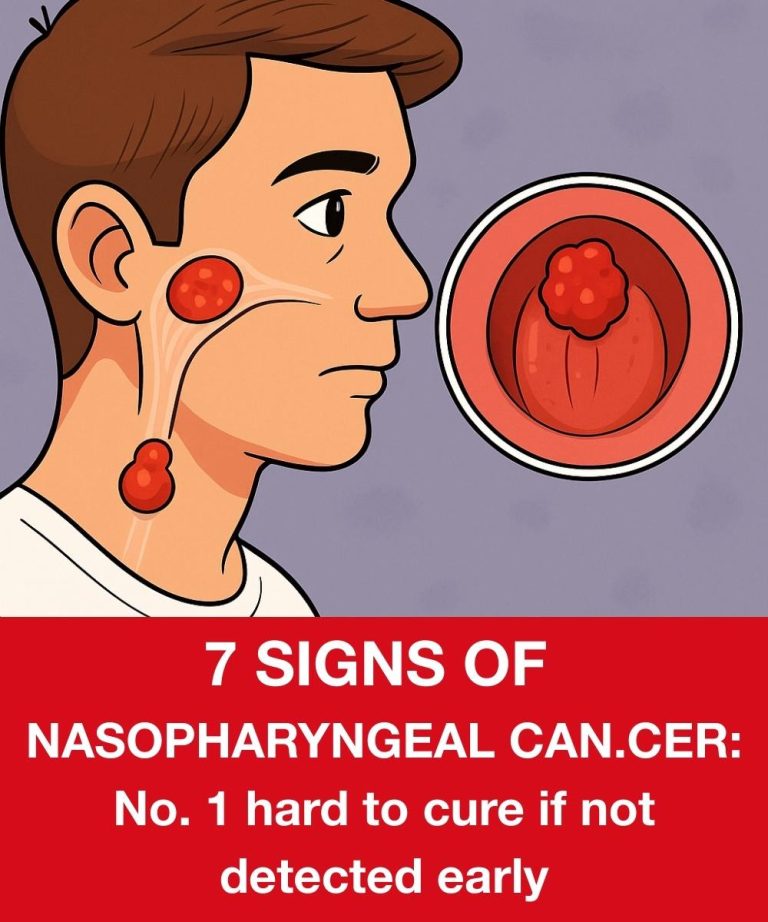6. Ear Discharge or Unexpected Bleeding
Another alarming symptom is fluid or blood draining from the ear. In serious throat conditions, growths may extend into the middle ear, creating infection or even rupturing delicate tissue.
Patients sometimes dismiss the early stages as wax buildup or minor irritation, but when discharge continues or worsens, medical attention is urgent. This sign often indicates that the illness has advanced beyond the early stage.
7. Numbness or Weakness in the Face
One of the more advanced warning signs is facial numbness. Because the nasopharynx sits near crucial facial nerves, a growing mass can press against these pathways.
Patients may experience tingling, loss of sensation, or even muscle weakness on one side of the face. Everyday actions—smiling, blinking, chewing—can suddenly feel difficult.
This symptom signals the importance of early detection. Once facial nerves are compromised, treatment becomes far more complex.
Why Early Detection Saves Lives
Like many ENT-related conditions, nasopharyngeal illness often hides behind ordinary symptoms. People assume they have a sinus infection, a lingering cold, or stress headaches, only to discover the problem much later.
Medical experts emphasize that catching the disease early can dramatically improve outcomes. In its initial stages, treatment options are more effective and less invasive. But once the illness spreads to lymph nodes or nerves, the journey becomes far more challenging.
For seniors, who may already face multiple health conditions, routine health screenings, preventive care, and annual wellness exams play a vital role in protecting long-term quality of life.
What You Can Do
- Pay attention to symptoms that last more than a few weeks.
- Schedule regular checkups with your primary care physician and consider ENT evaluations if problems persist.
- Don’t ignore subtle changes like ringing in the ears, recurring headaches, or a stuffy nose that never clears.
- Share your health history with your doctor, including family history of ENT disorders or cancers.
- Prioritize wellness exams—especially after age 60, when early detection becomes even more critical.
Our bodies are constantly speaking to us, but it takes wisdom to listen closely. A sore throat, a headache, or a blocked ear may seem ordinary, but when they refuse to go away, they deserve more than home remedies. They deserve attention.
For older adults, the lesson is clear: early detection saves lives. By recognizing these seven warning signs and acting quickly, you give yourself—or a loved one—the best possible chance at effective treatment and recovery.
